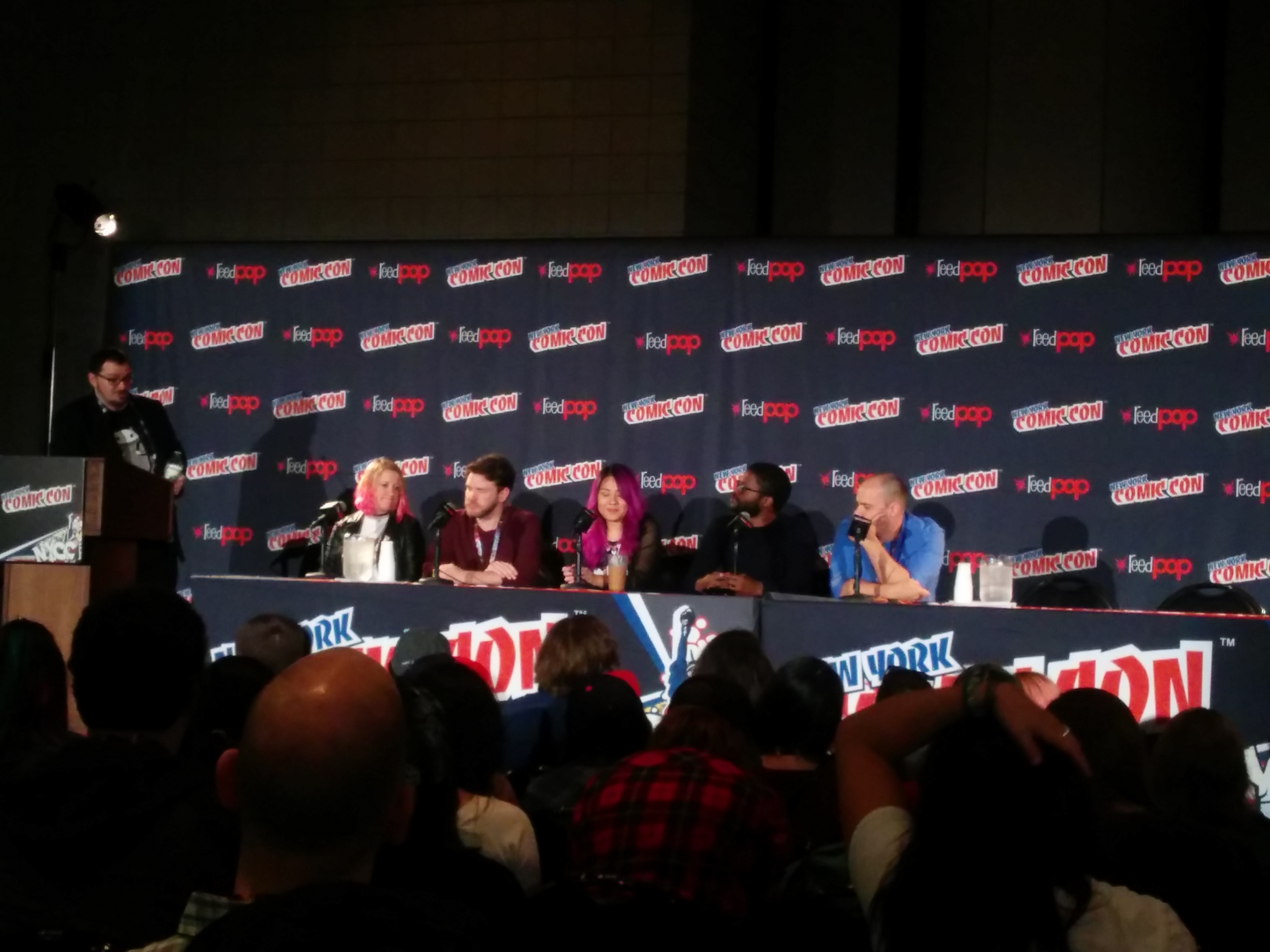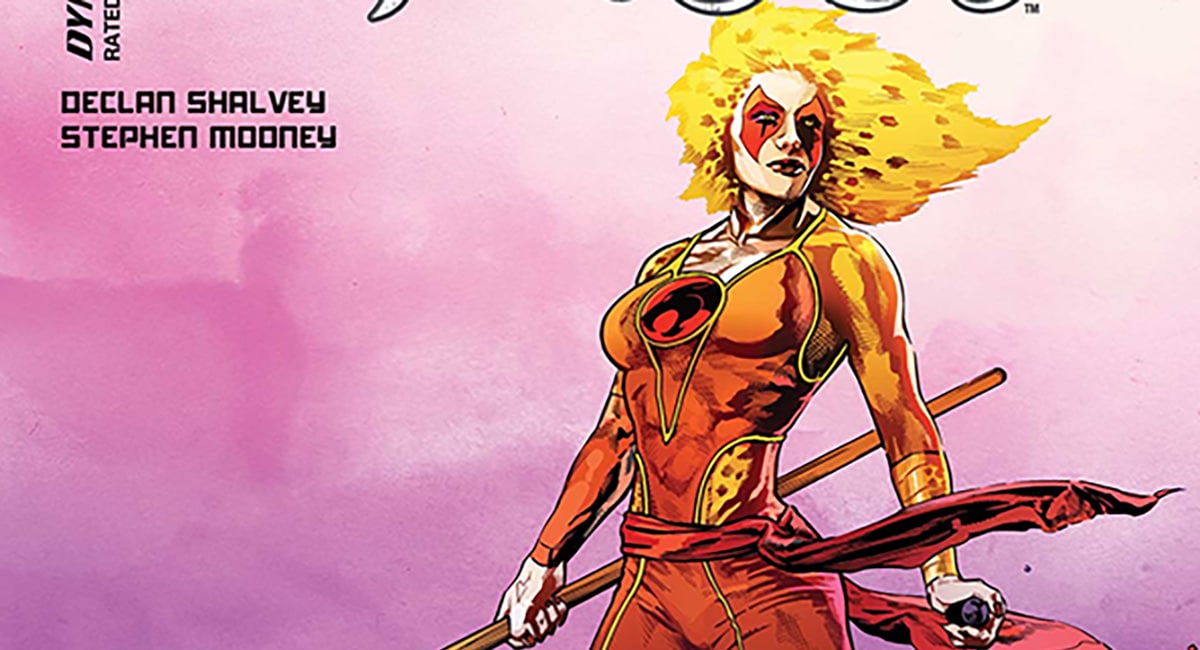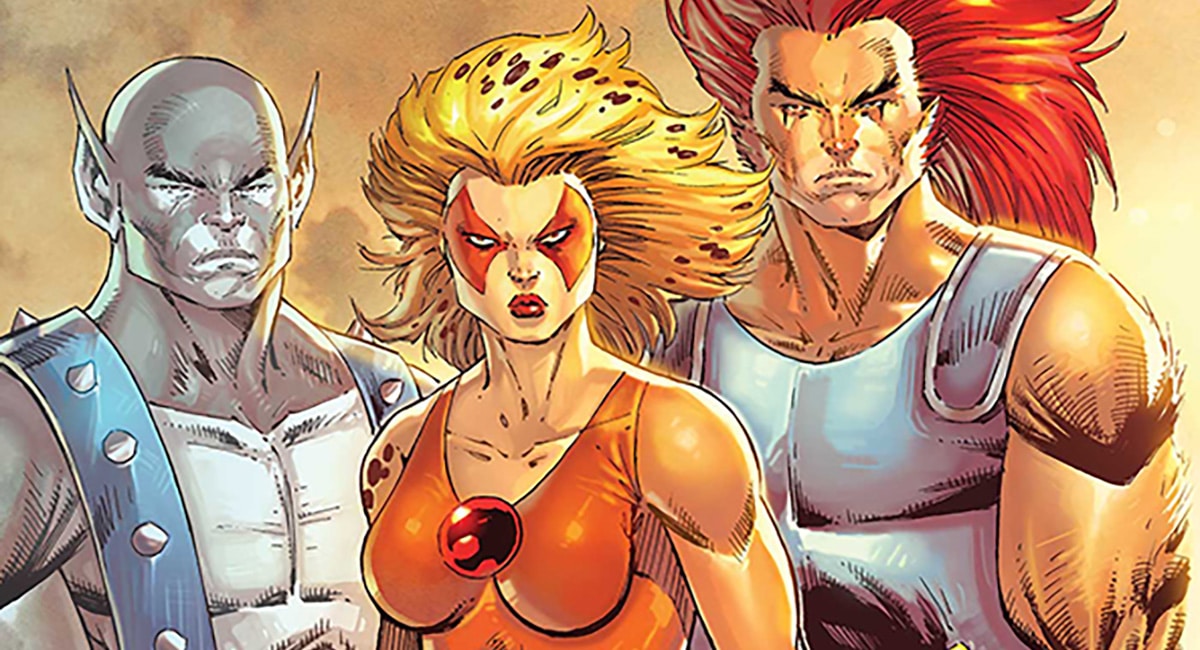Hey everyone, New York Comic Con 2016 is underway! We are here at the #ArtCred panel to bring you live updates from the panel room as stories break!
Panelists include Amy Reeder, David Brothers, Declan Shalvey, Tom King, Jen Bartel, and Caspar Wijngaard. Check out Elana Levin’s live tweets at @comicsbeatlive on Twitter!
- Declan stepped up to the stage to introduce the panelists and the movement. #ArtCred began after Declan noticed that whenever a comic would get a movie deal, the news surrounding the announcement would credit the book by its writer but not its artist.
- Tom King, best known for his current work on Batman and The Vision, started off by noting that as a writer his work is only 20% of what is seen on the page. “When you’re a writer, you’re looking for a fellow storyteller, not someone to just put the pictures in the boxes.” Artists are collaborators; not laborers.
- Jen Bartel has not been working in comics a long time, but she has been an illustrator for seven years. She finds it “interesting” that in children’s book production, the artist gets credited more than authors “because they’re picture books.” In comics though, artists are much more like collaborators but don’t get as much credit for what they do. She noted that colorists also don’t get nearly as much credit as they should. Jen said her art is extremely line based and that colorists have their work cut out for them when they work with her lineart.
- Declan noted that Jordie has her name on Batman, but can’t get her name on The Vision. She’s brought it up to Marvel a number of times but nothing’s come of it and none of the panelists can understand why.
- With Limbo, Caspar colored his own work. He was disappointed that many reviews didn’t note his contributions or even misattributed his work to the writer. Caspar noted that some reviews spent one line calling his work “crisp and clean” while going on and on about the writer’s creativity and attention to inserting “pop culture references in the background,” the latter of which was in fact Caspar’s contribution.
- Declan asked Amy if, as an artist who has transitioned into writing to some extent, that people have started to perceive her differently. Amy said that she has noticed that since starting work on Moon Girl and Devil Dinosaur, she’s been given a lot of credit for Moon Girl– more than artist Natacha Bustos or her co-writer Brandon Montclare.
- Again and again the term “collaborators” has been dropped. Declan wanted to note that he does not want #ArtCred to be “artists bitching about writers” as they are partners. It’s not an artist-first movement.
- Tom King dropped a bomb on the panel. He told a story about how, when he started working on his upcoming Batman arc with Mikael Janin, he decided to write a very experimental issue to give Janin room to play. However, King felt like he was doing so little writing with that script that he went to DC and asked them to credit him and Janin as “Storytellers” instead of him as “writer.” DC did it, but King had to take a pay cut and give Janin half King’s money in order to make it happen.
- Jen Bartel thinks that the mentality that “artists can’t be writers” needs to change. She noted that “there are incredibly intelligent artists” working in the industry who are “fully capable of writing their own stories by they choose to draw…people think that artists run on autopilot and that’s not the case at all.”
- Inside baseball talk about sound effects: Declan prefers not to use sound effects and let the art speak for itself, but Tom likes to include sound effects in his scripts in an attempt to slow down the reader’s eye and get them to appreciate the artwork.
- David Brothers thinks that a lot of the onus for change falls on journalists and publishers. Journalists define the conversation but publishers should be crediting writers, artists, colorists, letterers, and designers on covers nowadays.
- King notes that you can tell when an artist is good. They go to school for it and are professionals. You can’t tell with writers– “whether they’re good on a day to day” basis. Writers will look at beautiful art and overcompensate, putting too many words on a page in an attempt to equal the artist. “We need writers to be as professional and understand the medium as much on artists do.”
- Declan notes it’s “hard for artists to galvanize because everyone’s at a different level.” Younger, less experienced artists often feel pressured to take worse deals than they should because they need the work. Declan believes those in “better positions” should step up and take the lead to change the system.
- Declan: “we all have a responsibility to be more open with each other” when it comes to pay.
- Jen Bartel: “the credit people receive affects their livelihood,” so by “not crediting them you’re directly affecting their ability to get work in the future.” There are real ramifications to not promoting artists.
- Declan: “If you see a book that you really like and you see someone talking about it but not crediting the artist or the colorist, call them out.” It’s the only way to make change. Tell the publishers if you’re following a book because of the art.
That concludes our liveblog. Thanks for joining us!








